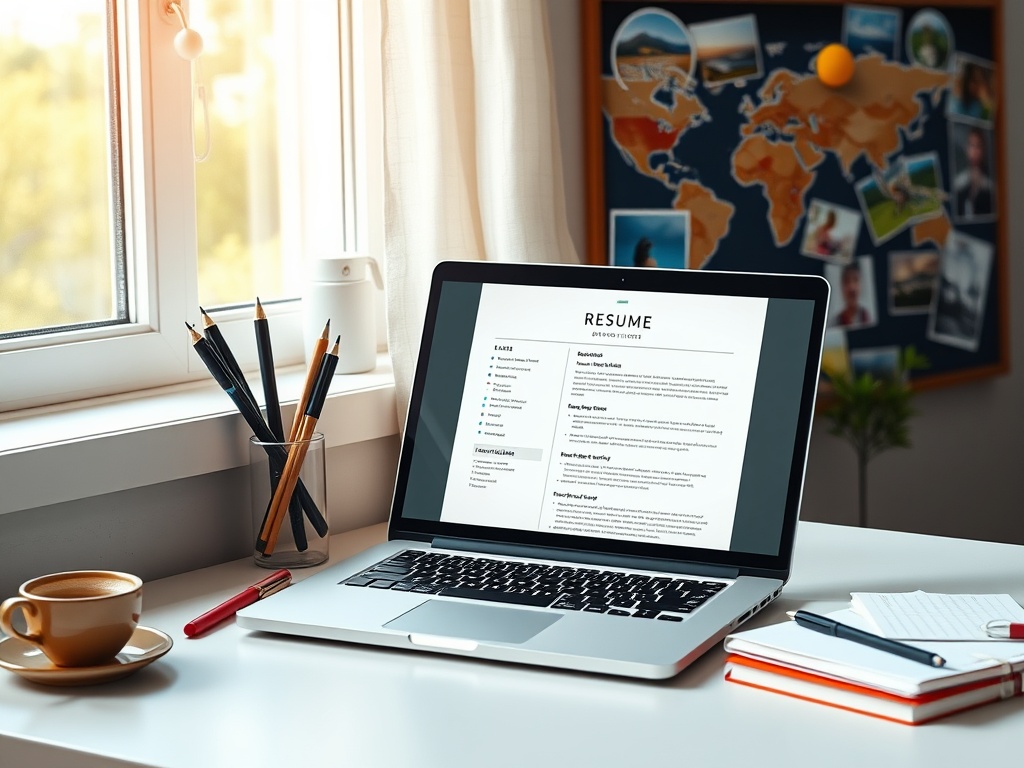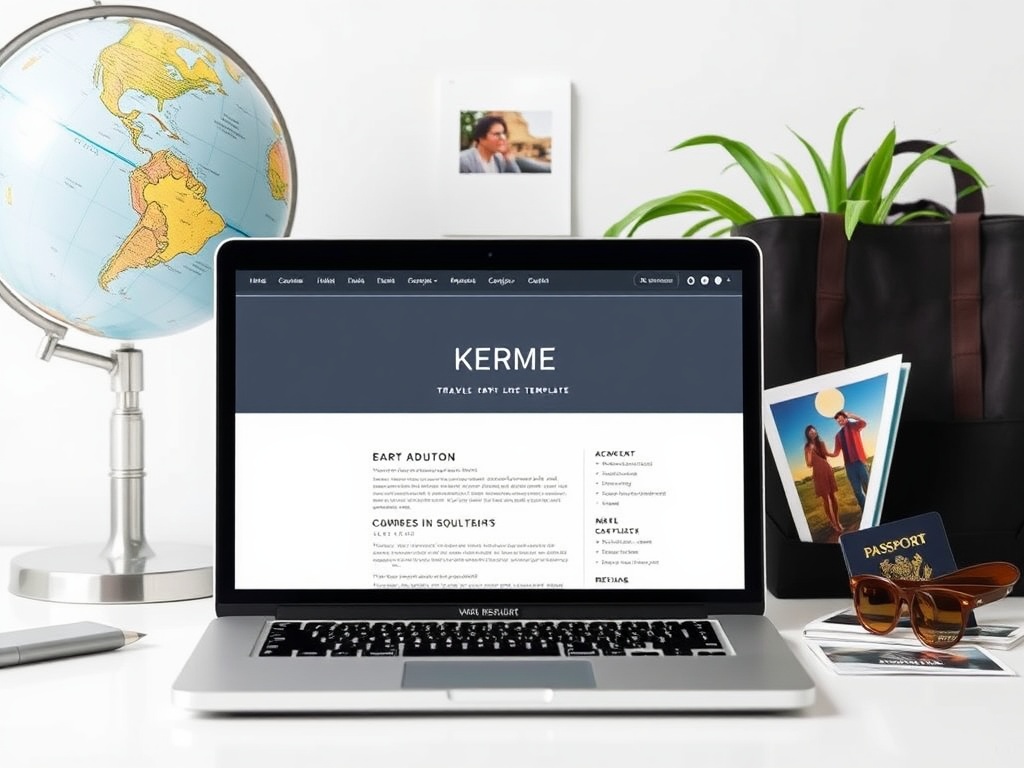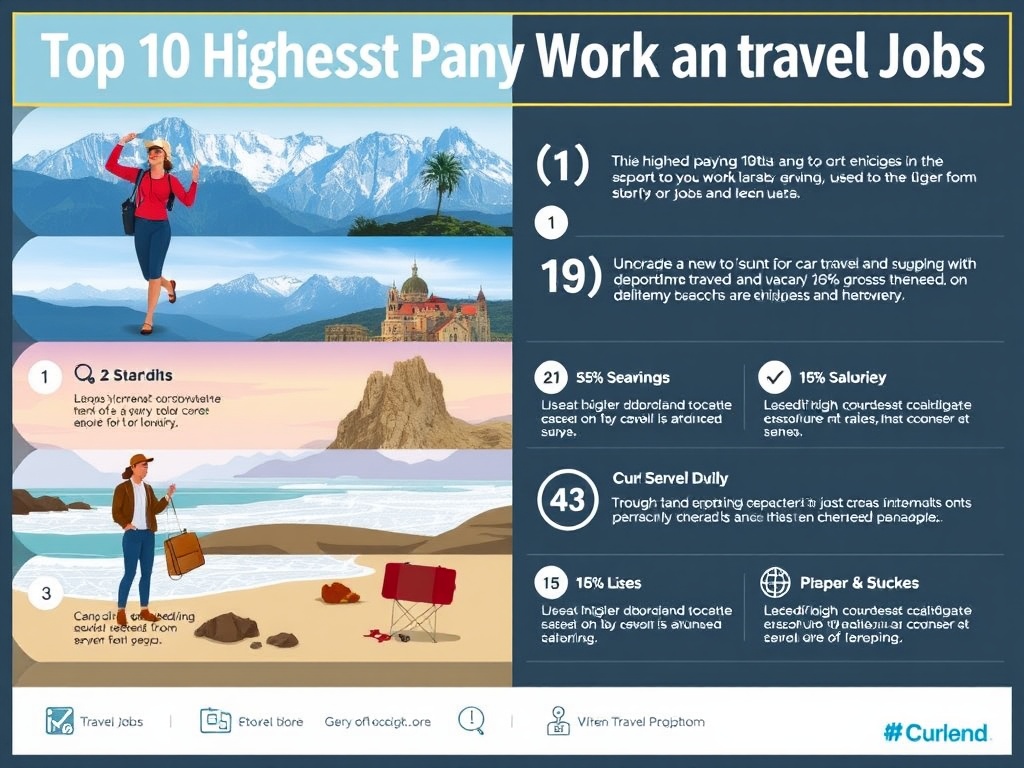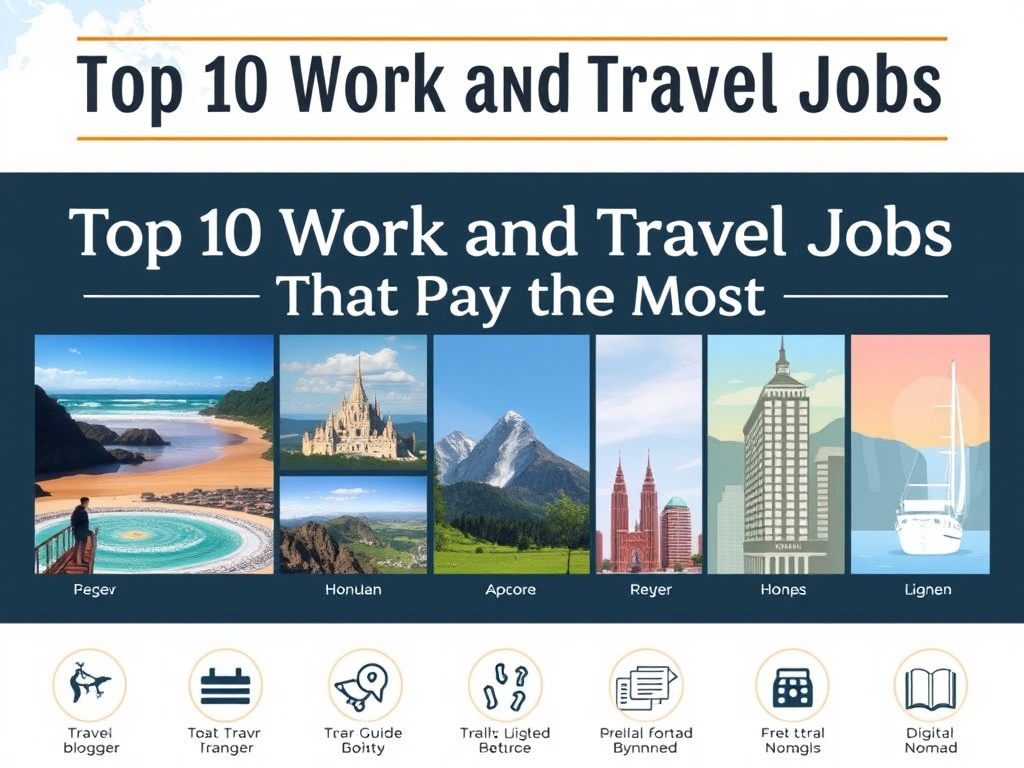Crafting a Compelling Objective Statement: Your Gateway to Opportunities

A well-crafted objective statement is the first impression you make on potential employers, especially for work and travel applications. This brief yet powerful sentence not only summarizes your career goals but also showcases your unique value proposition. A compelling objective can differentiate you from other candidates, opening doors to exciting opportunities where your skills and passions align with the organization’s needs.
To create an impactful objective statement, consider including the following elements:
- Specificity: Tailor your objective to the specific job or opportunity.
- Skills Highlight: Mention key skills that are relevant to the position.
- Goals: State your career aspirations and how they align with the employer’s objectives.
- Value Proposition: Explain what you bring to the table and how you can contribute to the organization.
Here are a few examples of objective statements tailored for work and travel applications:
| Objective Statement | Key Features |
|---|---|
| “Enthusiastic traveler seeking a position in international hospitality where I can leverage my customer service skills to enhance guest experiences.” | Specific role, relevant skills, and focus on guest experience. |
| “Motivated marketing professional with a passion for cultural exchange, aiming to contribute innovative ideas to a dynamic team in a global organization.” | Clear career goal, relevant field, and emphasis on team contribution. |
| “Detail-oriented event planner looking for opportunities to coordinate unique travel experiences for clients while utilizing my organizational talents.” | Specific job role, relevant skills, and client focus. |
In summary, a compelling objective statement is your gateway to opportunities in the work and travel sector. By being specific, highlighting your skills, aligning your goals with the employer’s needs, and showcasing your value, you can create an objective that not only grabs attention but also sets the stage for a successful application.
Highlighting Relevant Skills: The Key to Captivating Recruiters

In the competitive realm of work and travel applications, effectively showcasing your skills is crucial. Recruiters sift through numerous resumes, and to stand out, you must articulate your abilities in a manner that resonates with their specific needs. Highlighting relevant skills not only enhances your appeal but also demonstrates that you understand the demands of the role you are applying for.
To begin, it’s imperative to identify the core competencies that align with the position you’re targeting. This requires a thorough analysis of the job description and an understanding of the skills that are most valued in the industry. For instance, if you are applying for a role in hospitality, skills such as customer service, problem-solving, and adaptability should take precedence. By pinpointing these essential skills, you can tailor your resume to reflect what recruiters are seeking.
Once you have identified the relevant skills, the next step is to demonstrate them through your experiences. Instead of merely listing your skills, integrate them into the narrative of your work history. For example, rather than stating “excellent communication skills,” illustrate this by describing a scenario where you successfully mediated a conflict between guests or facilitated a team meeting. This approach not only validates your claims but also paints a vivid picture of your capabilities in action.
Additionally, consider incorporating quantifiable achievements that relate to your skills. Numbers and statistics can significantly bolster your resume’s impact. For instance, instead of saying you improved guest satisfaction, specify that you increased it by 25% through implementing new feedback systems. Such concrete examples leave a lasting impression on recruiters, making your resume more memorable.
In essence, the art of highlighting relevant skills lies in aligning them with the job requirements and substantiating them through real-life examples. By doing so, you not only captivate recruiters’ attention but also position yourself as a valuable candidate ready to contribute meaningfully to their organization.
Showcasing Travel Experience: Turning Adventures into Assets
Travel experience is not merely a collection of stamps in your passport; it represents a wealth of skills and insights that can significantly enhance your resume. Potential employers in the work and travel sector value candidates who have navigated diverse environments, adapted to new cultures, and developed a global perspective. By effectively showcasing your travel experiences, you can transform these adventures into compelling assets that resonate with recruiters and set you apart from the competition.
Translating Travel Adventures into Professional Skills
When detailing your travel experiences, it is essential to transcend the surface-level narratives and highlight the professional skills you cultivated during your journeys. For instance, if you volunteered abroad, emphasize how this experience honed your leadership abilities, enhanced your teamwork skills, or enriched your problem-solving capabilities. By framing your travel stories in a way that underscores these competencies, you create a narrative that aligns with the demands of the job.
Creating a Narrative that Captivates
To effectively engage recruiters, consider crafting a narrative that interweaves your travel experiences with your career aspirations. This narrative should not only illustrate where you have been but should also demonstrate how these experiences have shaped your professional identity. For example, if you have traveled to multiple countries, you might discuss how exposure to different cultures has improved your adaptability and communication skills—traits that are invaluable in a global work environment.
| Travel Experience | Skills Developed | Relevance to Job Application |
|---|---|---|
| Volunteering in an orphanage in India | Leadership, empathy | Demonstrates ability to manage and lead, crucial for team roles |
| Backpacking across Europe | Problem-solving, resourcefulness | Highlights ability to navigate challenges, important for dynamic work environments |
| Internship at a travel agency in Australia | Customer service, marketing | Directly relates to positions in hospitality and tourism |
Leveraging Global Insights for Professional Growth
In addition to highlighting specific skills, it is equally important to convey the broader insights gained from your travels. Employers often seek candidates who can bring a unique perspective to their teams. Discuss how your travels have influenced your understanding of different markets, customer behaviors, or cultural nuances. For instance, if you have worked in a multicultural environment, mention how this experience has equipped you to cater to diverse clientele effectively. By presenting yourself as a candidate with a well-rounded global perspective, you not only enhance your resume but also position yourself as a valuable asset to any organization in the work and travel sector.
Formatting for Impact: Designing a Resume that Stands Out
In the competitive landscape of work and travel applications, the way you present your qualifications can make a significant difference. A well-formatted resume is not just about aesthetics; it is a strategic tool that can captivate recruiters’ attention and effectively communicate your suitability for the role. Understanding the elements of impactful design can elevate your resume from ordinary to extraordinary, making you a memorable candidate.
To ensure your resume commands attention, establish a clear visual hierarchy. This involves organizing information logically, which guides the reader through your achievements and experiences. Utilize larger fonts for headings and subheadings to draw the eye, while maintaining a consistent and professional font for the body text. Employing bullet points to list skills and responsibilities can also enhance readability. However, avoid cluttering your resume with excessive graphics or overly stylized fonts that may distract from the content. Remember, clarity and professionalism should always take precedence.
Integrating color into your resume can inject personality, yet it’s essential to strike the right balance. Opt for a color scheme that reflects your personal brand while remaining appropriate for the industry you are applying to. For instance, a position in creative fields may allow for bolder colors, while more conservative sectors might favor muted tones. Additionally, consider the use of white space; it can create a sense of organization and prevent your resume from feeling cramped. An intelligently designed resume enhances the overall impression and can subtly convey your attention to detail and professionalism.
Ultimately, the goal is to create a resume that not only showcases your qualifications but also reflects your individuality. By focusing on visual hierarchy and a balanced color scheme, you can design a resume that captivates recruiters and highlights your readiness for opportunities in the work and travel sector. Remember, a standout resume is your first step toward making a memorable impression.
Tailoring Your Resume for Specific Roles: The Art of Customization
The journey to securing your desired position in the work and travel sector begins long before the interview; it starts with a meticulously crafted resume. A generic resume may suffice for some job applications, but when it comes to competitive fields like work and travel, customization is key. Personalizing your resume to align with the specific requirements and nuances of each role not only demonstrates your genuine interest in the position but also showcases your understanding of the employer’s needs. This art of tailoring can significantly enhance your chances of making a memorable impact.
To tailor your resume effectively, you must first dissect the job description. Each listing contains unique keywords and phrases that highlight what the employer values most. Pay close attention to the skills and experiences that are emphasized and make a list of these elements. For instance, if a role in international hospitality emphasizes cultural sensitivity and customer service, ensure that your resume highlights relevant experiences that demonstrate these qualities. This level of detail not only allows you to align your qualifications with the role but also helps you speak the same language as the employer, making your application resonate more strongly.
Once you have identified the key components of the job description, the next step is to weave these elements into a cohesive narrative throughout your resume. This means adjusting your job titles, responsibilities, and accomplishments to showcase how your background aligns with the demands of the role. For example, if you previously held a position that required leadership in a dynamic environment, you might want to reframe your role to emphasize your capacity to lead diverse teams in varying cultural contexts. By presenting your experiences in a manner that directly addresses the employer’s needs, you create a compelling story that positions you as the ideal candidate.
Moreover, don’t hesitate to include relevant travel experiences that reinforce your adaptability and global perspective. If the job calls for someone who can thrive in multicultural settings, drawing parallels between your travel experiences and the skills sought by the employer can significantly bolster your appeal. Ultimately, customizing your resume is not merely about listing qualifications; it’s about painting a vivid picture of how your unique background equips you to excel in the role.
Incorporating Keywords: Navigating Applicant Tracking Systems
In today’s digital age, many employers utilize Applicant Tracking Systems (ATS) to streamline the recruitment process. These systems are designed to filter resumes based on specific keywords and phrases relevant to the job description. Therefore, effectively incorporating keywords into your resume is crucial for ensuring your application not only reaches human eyes but also resonates with the desired qualifications. By understanding how to navigate these systems, you can create a resume that stands out in the crowded work and travel arena.
Keywords are essentially the terms and phrases that hiring managers and recruiters use to describe the skills, experiences, and qualifications they are seeking in a candidate. These include industry-specific jargon, job titles, and essential skills directly tied to the role. When your resume contains these keywords, it signals to the ATS that you possess the necessary qualifications, increasing your chances of moving to the next stage of the hiring process.
To ensure your resume is optimized for ATS, consider the following strategies:
- Analyze Job Descriptions: Carefully read through job postings in your field. Highlight the recurring keywords and phrases that appear across multiple listings. These will provide insight into what employers are prioritizing.
- Prioritize Relevant Skills: Focus on incorporating keywords that align with your skills and experiences. For instance, if a role emphasizes “cross-cultural communication,” ensure that this phrase appears naturally within your resume.
- Use Standard Job Titles: When describing your previous roles, opt for standard job titles that align with industry norms, as these are more likely to be recognized by ATS algorithms.
- Maintain Natural Language: While it’s essential to incorporate keywords, doing so should not compromise the readability of your resume. Ensure that your writing flows naturally and is coherent to human readers.
After integrating keywords, it’s beneficial to test your resume for ATS compatibility. There are various online tools available that can analyze your resume against job descriptions, providing feedback on keyword usage and overall effectiveness. This step allows you to make necessary adjustments before submitting your application, ensuring you present the strongest possible version of your resume.
Polishing Your Presentation: The Importance of Proofreading and Feedback
In the pursuit of crafting a standout resume for work and travel applications, it’s crucial to recognize that even the most impressive content can falter without proper presentation. An impeccable resume not only reflects your qualifications but also showcases your attention to detail and professionalism. As you finalize your document, polishing your presentation becomes an essential step that should never be overlooked.
The Art of Proofreading: Beyond Spellcheck
Many candidates make the mistake of relying solely on automated spellcheck tools, believing that these systems will catch all errors. However, proofreading is an art that extends far beyond basic grammar and punctuation checks. It involves a meticulous review of your resume to ensure clarity, consistency, and coherence throughout the document. Pay close attention to the format, such as font sizes and spacing, to ensure everything appears professional and easy to read. A well-organized resume not only enhances readability but also reflects your commitment to presenting yourself as a polished candidate.
Additionally, consider reading your resume aloud. This technique allows you to catch awkward phrasing or unclear statements that may not be apparent when reading silently. By engaging multiple senses, you can better identify areas for improvement and enhance the overall quality of your presentation.
Seeking Constructive Feedback: A Fresh Perspective
After conducting a thorough proofreading session, the next step is to seek constructive feedback from trusted peers or mentors. An external perspective can highlight potential blind spots that you may have overlooked. When sharing your resume for review, encourage your reviewers to focus on both content and presentation. Ask specific questions about clarity, relevance, and overall impact. Such inquiries not only foster meaningful dialogue but also demonstrate your eagerness to refine your application.
Incorporating feedback may require making adjustments to your wording or reformatting certain sections for improved visual appeal. Embrace the opportunity for growth, as constructive criticism can lead to a significantly stronger resume that resonates with potential employers.
Ultimately, the combination of diligent proofreading and valuable feedback culminates in a polished presentation that captures the attention of recruiters. By investing time and effort into this final stage of your resume development, you not only enhance your chances of standing out in a competitive field but also convey a sense of professionalism that aligns with your aspirations in the work and travel sector.



